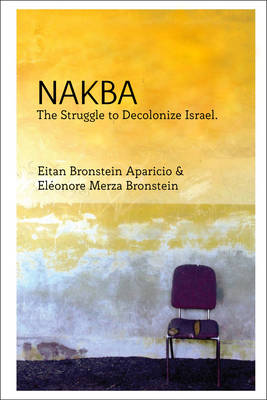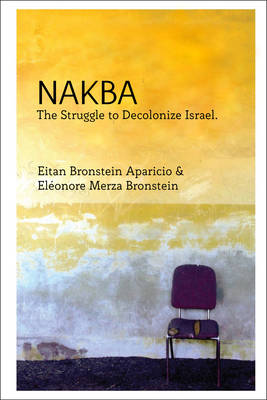
Je cadeautjes zeker op tijd in huis hebben voor de feestdagen? Kom langs in onze winkels en vind het perfecte geschenk!
- Afhalen na 1 uur in een winkel met voorraad
- Gratis thuislevering in België vanaf € 30
- Ruim aanbod met 7 miljoen producten
Je cadeautjes zeker op tijd in huis hebben voor de feestdagen? Kom langs in onze winkels en vind het perfecte geschenk!
- Afhalen na 1 uur in een winkel met voorraad
- Gratis thuislevering in België vanaf € 30
- Ruim aanbod met 7 miljoen producten
Zoeken
Nakba
The Struggle to Decolonise Israel
Eléonore Merza Bronstein, Eitan Bronstein Aparicio
Paperback | Engels
€ 34,95
+ 69 punten
Omschrijving
In 1948 three-quarters of a million Palestinians were expelled from their land and and some 615 villages were destroyed in order to establish the state of Israel. This is known as the Nakba ("catastrophe" in Arabic). It is it is something which was, for a long time, not discussed in Israel. This was, essentially, the front line of a battle against an established colonial narrative which started at the end of the 19th century and which continues to this day. This important book explores the experience of Eitan Bronstein, a leading voice for political change in Israel. How did this young Israeli kibbutznik, once a left-wing Zionist, become a radical anti-Zionist? This account draws together a moving personal story with the unrolling of an epic section of history. It highlights how Israelis see the Nakba and explores their responses to Palestinian insistence on the right of return. In essence, it is a window on Israeli society itself. What emerges is the hope that a new generation of Israelis will free themselves from a collective colonial identity and will conceive of a way of cohabiting on this land legitimately, in a way that will be fair for all.
Specificaties
Betrokkenen
- Auteur(s):
- Uitgeverij:
Inhoud
- Aantal bladzijden:
- 335
- Taal:
- Engels
Eigenschappen
- Productcode (EAN):
- 9781914325069
- Verschijningsdatum:
- 1/08/2023
- Uitvoering:
- Paperback
- Formaat:
- Trade paperback (VS)
- Afmetingen:
- 140 mm x 210 mm
- Gewicht:
- 381 g

Alleen bij Standaard Boekhandel
+ 69 punten op je klantenkaart van Standaard Boekhandel
Beoordelingen
We publiceren alleen reviews die voldoen aan de voorwaarden voor reviews. Bekijk onze voorwaarden voor reviews.









